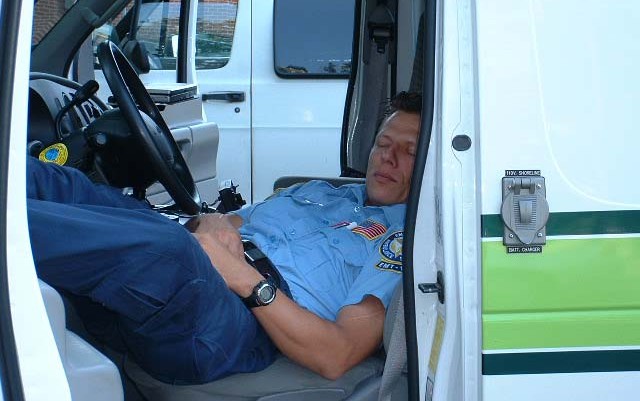
Sleep Problems in First Responders and the Military
Bryan Vila and Charles Samuels study published on the Expert Consult database. Extract from the Principle and Practice of sleep medicine, Meir H. Kryger MD, Thomas Roth PhD, William C. Dement MD PhD (book here)
INTRODUCTION – Fatigue is one of the most common health and safety hazards faced by police officers, as well as other first responders and military personnel in similar operational environments. Whether caused by extended-duty hours, night work, lack of rest, or circadian disruption, fatigue contributes to high levels of mortality and morbidity in these occupational groups. It also degrades cognitive performance, differentially impairing the parts of the brain that are most important for making sound judgments, deciding on appropriate courses of action, and exercising restraint in the face of threat and provocation. This impairment is particularly problematic in civilian police work, which we use here as a general model for all first responders and the military. Police, just like military personnel assigned to ground counterinsurgency operations and peacekeeping assignments, often face aggressors who are difficult to distinguish from bystanders in ambiguous, fastpaced, and complex situations in which they must identify and neutralize threats. The consequences of either failing to exercise restraint and minimize civilian casualties or failing to effectively neutralize an enemy can be equally dire—for operators on the ground and for strategic objectives. Analogous challenges confront other first responders and military specialties. Because the social, organizational, and individual causes of sleep loss among these occupational groups are inextricably linked, in this chapter a review is presented of the systematic interactions that must be taken into account to understand and treat sleep problems and disorders among this critical population. How such an approach provides opportunities for sleep physicians to improve both patient treatment and public health by working with operational agencies is discussed.
Police officers in the United States, Canada, and many other industrialized nations often are overly fatigued because of long and erratic work hours, shift work, and insufficient sleep. These factors likely contribute to elevated levels of morbidity and mortality, psychological disorders, and family dysfunction observed among police. Fatigue-related impairments to officer performance and decision-making can generate unexpected social and economic costs because of the sensitivity, risks, and potential consequences of their actions.
Managing police fatigue requires balancing the biological and social needs of police officers against those of the organizations that employ them and the communities they serve. Police work is one of the most critical and expensive government activities. Communities must have sufficient officers on duty at any moment to respond to emergencies, prevent crime, and arrest offenders, but not so many that public resources are wasted. To complicate matters, the need for police services fluctuates across the day, week, and season. This scheduling problem is compounded by the complexities of managing fatigue and work hours.
If officers are impaired by fatigue, they become less alert, their cognitive and physical abilities decline, their moods worsen, and they become less able to deal with stress. This reduces both public and officer safety because risks of job-related accidents, injuries, errors, and misconduct increase. Over the long term, chronic sleep loss makes officers more vulnerable to illness, chronic disorders, and certain kinds of cancers. Fatigue also corrodes the quality of family and social interactions that help ground officers and buffer the impact of repeated exposure to a toxic work environment over the course of a decades-long career.
Preventive measures and treatment require consideration of these systematic processes that cause sleep loss and interfere with recuperation as well as the internal systems associated with patients in distress.


